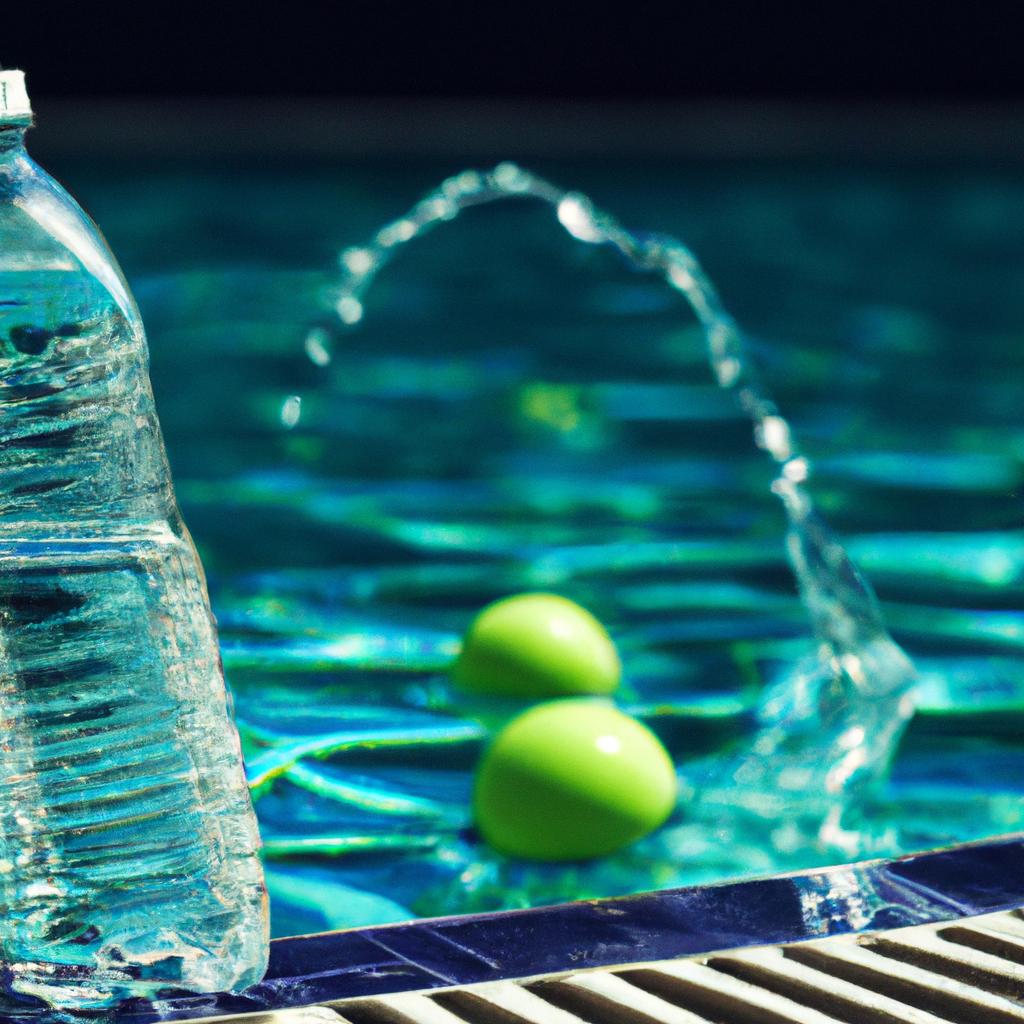**”Hydration and Athletic Performance in Hot Weather: Strategies to Maintain Fluid Balance and Optimize Endurance”**
# Hydration and Athletic Performance in Hot Weather: Strategies to Maintain Fluid Balance and Optimize Endurance
As temperatures rise, athletes face unique challenges in maintaining hydration and optimal performance. Hot weather increases sweat production, leading to fluid loss that can significantly impact endurance, strength, and overall athletic performance. Inadequate hydration can result in heat-related illnesses, decreased cognitive function, and impaired physical capabilities. Understanding the importance of hydration, implementing effective strategies, and knowing the signs of dehydration can help athletes excel even in the hottest conditions.
## The Importance of Hydration for Athletes
### The Role of Water in Physical Performance
Water is essential for various physiological functions, including temperature regulation, nutrient transportation, and muscle function. During physical activity, especially in hot weather, the body relies on sweat to cool itself. This process, while vital, leads to a loss of fluids and electrolytes, which can affect performance if not adequately replaced.
### Recognizing the Signs of Dehydration
Dehydration can manifest in several ways, from mild symptoms like thirst and dry mouth to more severe consequences like dizziness, fatigue, and confusion. Athletes should be vigilant for these signs, particularly in hot weather, where fluid loss can occur rapidly. Monitoring urine color can also be a helpful tool; pale yellow generally indicates adequate hydration, while darker shades suggest a need for increased fluid intake.
## Nutrition Tips for Optimal Hydration
### Pre-Exercise Hydration
Maintaining hydration should begin well before the workout. Athletes should aim to drink at least 16-20 ounces of water or a sports drink two to three hours before exercising. This practice ensures that the body is well-hydrated before physical exertion begins.
### During Exercise: Fluid Replacement Strategies
During prolonged exercise, especially in hot conditions, athletes should consume fluids regularly. A general guideline is to drink about 7-10 ounces of water every 10-20 minutes. For workouts lasting longer than an hour, incorporating electrolyte-rich sports drinks can help replenish lost sodium and potassium.
### Post-Exercise Recovery
Rehydration after exercise is crucial for recovery. Athletes should aim to drink 16-24 ounces of fluid for every pound of body weight lost during exercise. Including snacks or meals that contain both carbohydrates and protein can further aid recovery, as they replenish glycogen stores and facilitate muscle repair.
## Exercise Advice for Hot Weather Conditions
### Adjusting Training Intensity
In hot weather, athletes may need to adjust their training intensity and duration to accommodate the heat. It’s advisable to schedule workouts during cooler parts of the day, such as early morning or late evening, to minimize heat exposure.
### Acclimatization
Athletes should gradually acclimatize to hot weather by slowly increasing their training volume and intensity over a week or two. This process allows the body to adapt to heat stress, improving sweat response and reducing the risk of heat-related illnesses.
### Incorporating Rest Breaks
Incorporating regular breaks during training sessions is vital for hydration and recovery. Taking short breaks in shaded areas can help athletes cool down and rehydrate, ensuring they maintain performance levels throughout their workout.
## Health Benefits of Proper Hydration
### Enhanced Athletic Performance
Proper hydration improves endurance, strength, and overall athletic performance. Well-hydrated athletes experience better reaction times, increased energy levels, and enhanced focus, all critical components for success in competitive sports.
### Reduced Risk of Heat-Related Illnesses
Adequate hydration helps prevent heat exhaustion and heat stroke, which can have serious health consequences. Staying hydrated allows the body to regulate its temperature more effectively and reduces the risk of overheating during intense physical activity.
### Improved Recovery
Hydration plays a significant role in recovery post-exercise. Proper fluid intake helps flush out toxins, reduces muscle soreness, and promotes faster recovery times, allowing athletes to train more effectively in subsequent sessions.
## Conclusion
In conclusion, staying hydrated is essential for athletes, especially during hot weather when fluid loss can significantly impact performance and health. By implementing effective hydration strategies, including pre-exercise preparation, regular fluid intake during workouts, and post-exercise recovery practices, athletes can optimize their endurance and overall performance. Additionally, adjusting training intensity, acclimatizing to heat, and recognizing the signs of dehydration are critical for maintaining health and maximizing athletic potential. Prioritizing hydration not only enhances physical performance but also safeguards against heat-related illnesses, making it a vital aspect of any athlete’s training regimen.















Post Comment